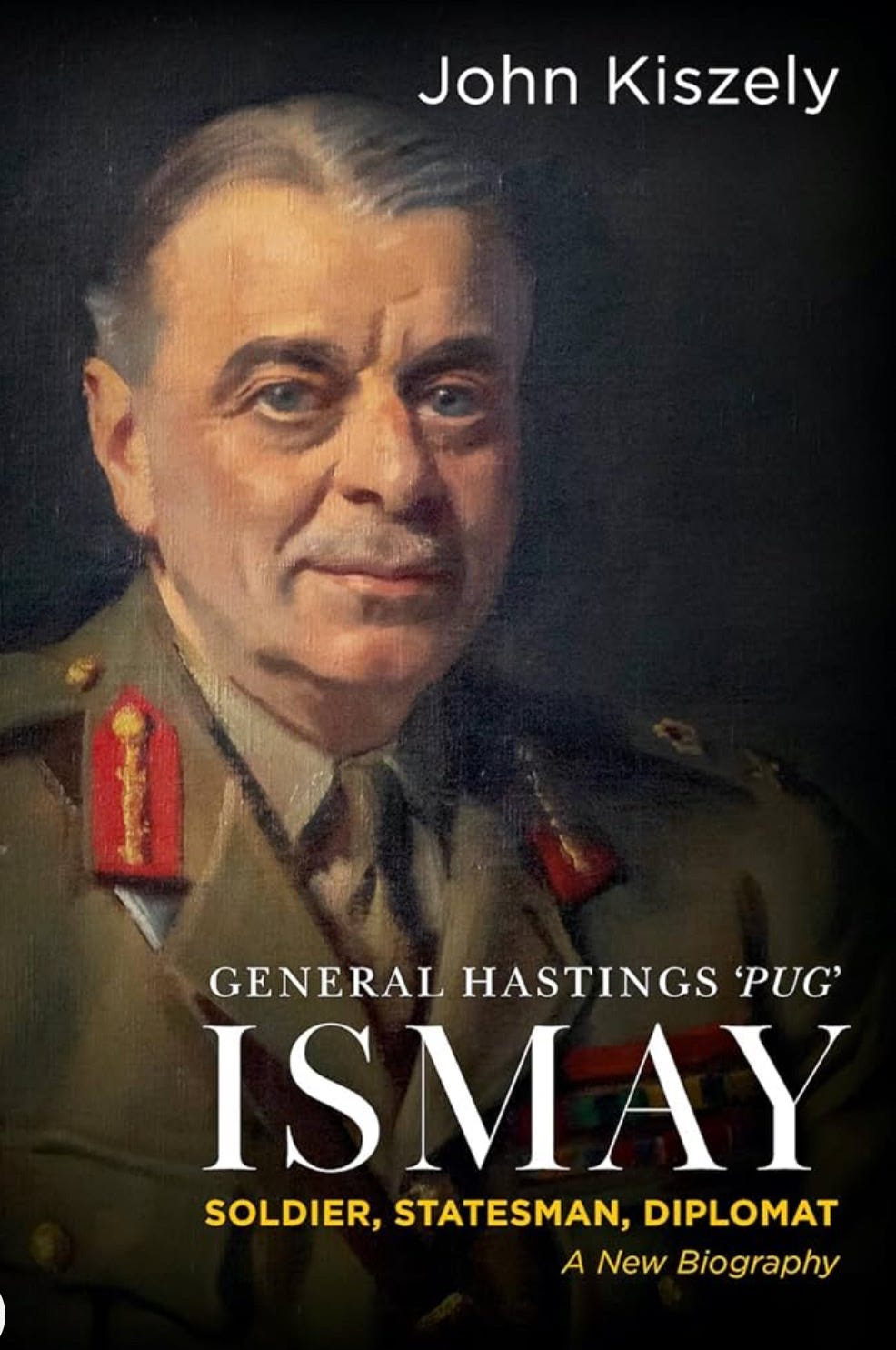The British Army has produced a remarkable array of soldier-scholars over the years. Lieutenant General Sir John Kiszely is one of these. His meticulous examination of the Norway Campaign of 1940 showed the weakness of the British Army’s approach to campaign planning, and its embarrassing inability to execute a half competent military operation on a distant shore. His study is a brilliant examination of the constituent parts of military failure, the existential experience poor armies seemingly have to experience before they hope to improve.
In this book Kiszely demonstrates his forensic talent in presenting to us a man who sat at the heart of Churchill’s Cabinet and decision-making process throughout the war, but who hid his light under a bushel to the extent that his name has been almost entirely erased from the popular memory of these times: Major General ‘Pug’ Ismay. In this revealing book Kiszely shows us a new side to the decision-making process of the war, through the revealing perspective of an insider who was uniquely placed to record and influence the great events of the war. He wore, simultaneously, a series of hats that makes it remarkable that he has been all but ignored by historians. He was Churchill’s chief of staff, head of his secretariat, deputy military secretary to the War Cabinet, and a member of the Chiefs of Staff Committee. He was, therefore, at the beating heart of Britain’s war machinery. It is impossible to understand how the decision-making of the war was conducted without appreciating the role he played. Kiszely has given us this full orbed and hitherto unappreciated portrait of a key member of the Churchill and the Chiefs of Staff’s thinking apparatus.
Who was Ismay in all this? He was a cog in a complex machinery that, though rarely seen and often prosaic, was nevertheless indispensable for all that. Kiszely’s genius has been to uncover this cog and to reveal the role he held behind the scenes in the war’s decision-making machinery. He was commissioned into the Indian Army and enjoyed his fair share of adventures as a young officer, but in middle rank found his metier as a thinker and coordinator of high level planning. Before long he was an indispensable companion to important committees, Secretaries of State and a single Prime Minister – Winston Churchill. In this role he acted as the dispenser of healing balm, a smoother of ruffled feathers. No matter how cross he became privately with this matter or that (and on one occasion he proffered his resignation to Churchill), on the outside he remained a paragon of amity and calm. An Army officer, he liked and got on well with Americans, as well as with officers of the RAF and Royal Navy, appreciating their perspectives in a way alien to more prejudiced men. It was in his close relationship with Winston Churchill that he will be remembered, as with the bond he cemented with General Dwight Eisenhower. Keeping both men calm, and working together on parallel tracks was his primary duty, a task he achieved with classic self-effacement. It wasn’t easy, and Ismay felt fit to burst on occasions. But he stood firm, despite being tossed to and fro by his oftentimes intemperate boss and by challenges sometimes seemingly too difficult to resolve. By no means perfect he was nevertheless a brilliant man, in the right place at the right time. He had a broad, fast and capable brain. If any of Churchill’s generals can be credited with winning the war, it was Ismay. Kiszely has given us a careful, intelligent and illuminating study of this great man. We should collectively be ashamed that his name is not better known.



Curious that he never made 3-star rank, as we nowadays, annoyingly, reference such matters.
Thank you Rob, I don’t envy him in that role. I have seen the book in Waterstones further investigation is required.